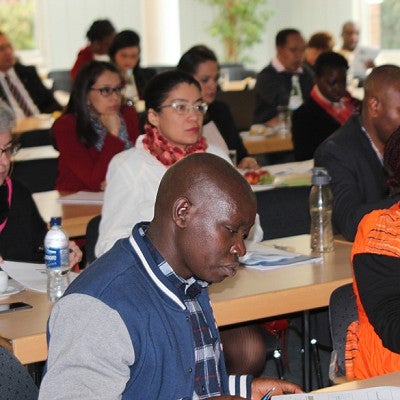
“We are excited at the opportunity to adapt the EPIC model for much different cultural, political, and institutional contexts around the world,” says Schlossberg. “The basic building blocks remain the same – smart students with time and insight to give as well as communities and local governments that can utilize such insight and energy to address critical local needs.”
Approximately 13-15 pairs of university and community partners will take part in the training. Pairs come from countries across sub-Saharan Africa. In addition to training new partners, Schlossberg also anticipates strengthening partnerships formed during the first EPIC-N international training last year in Bonn, Germany.
The EPIC framework is already in practice on the continent thanks to the efforts of Edna Odhiambo. Edna is a graduate of the University of Oregon Master of Laws (LL.M.) program. She was active in Redmond, Oregon as part of the University of Oregon’s EPIC program, the Sustainable City Year Program (SCYP). She used her SCYP experience to build a partnership between the University of Nairobi and Nairobi County.
In addition to training new university and community partners, Schlossberg and Larco will train a team to conduct future EPIC-N workshops. This team will work to form a regional network of EPIC-N programs in partnership with the United Nations, National Science Foundation, International City/County Management Association, and Environmental Protection Agency.
“One of my primary motivations for going into academia in the 1990s was to figure out how to liberate the talent of universities to advance the social good outside the walls of universities,” says Schlossberg. “Watching SCYP turn into EPIC-N and EPIC-N go from the US to the world is truly humbling and exciting.”
The workshop will be held in conjunction with the Future Resilience for African Cities and Lands (FRACTAL) conference, and funding from the United Nations is helping make the entire workshop possible.
